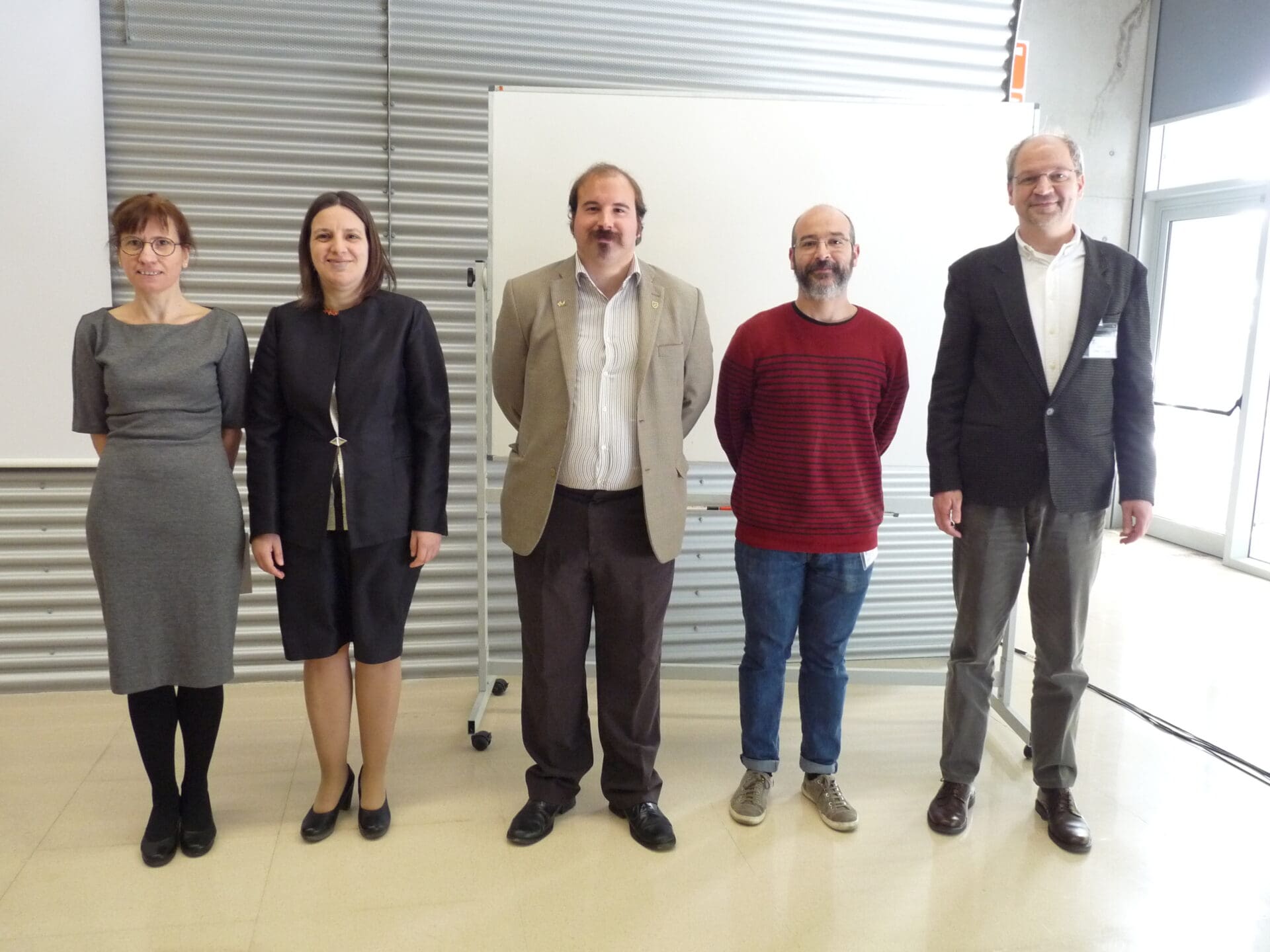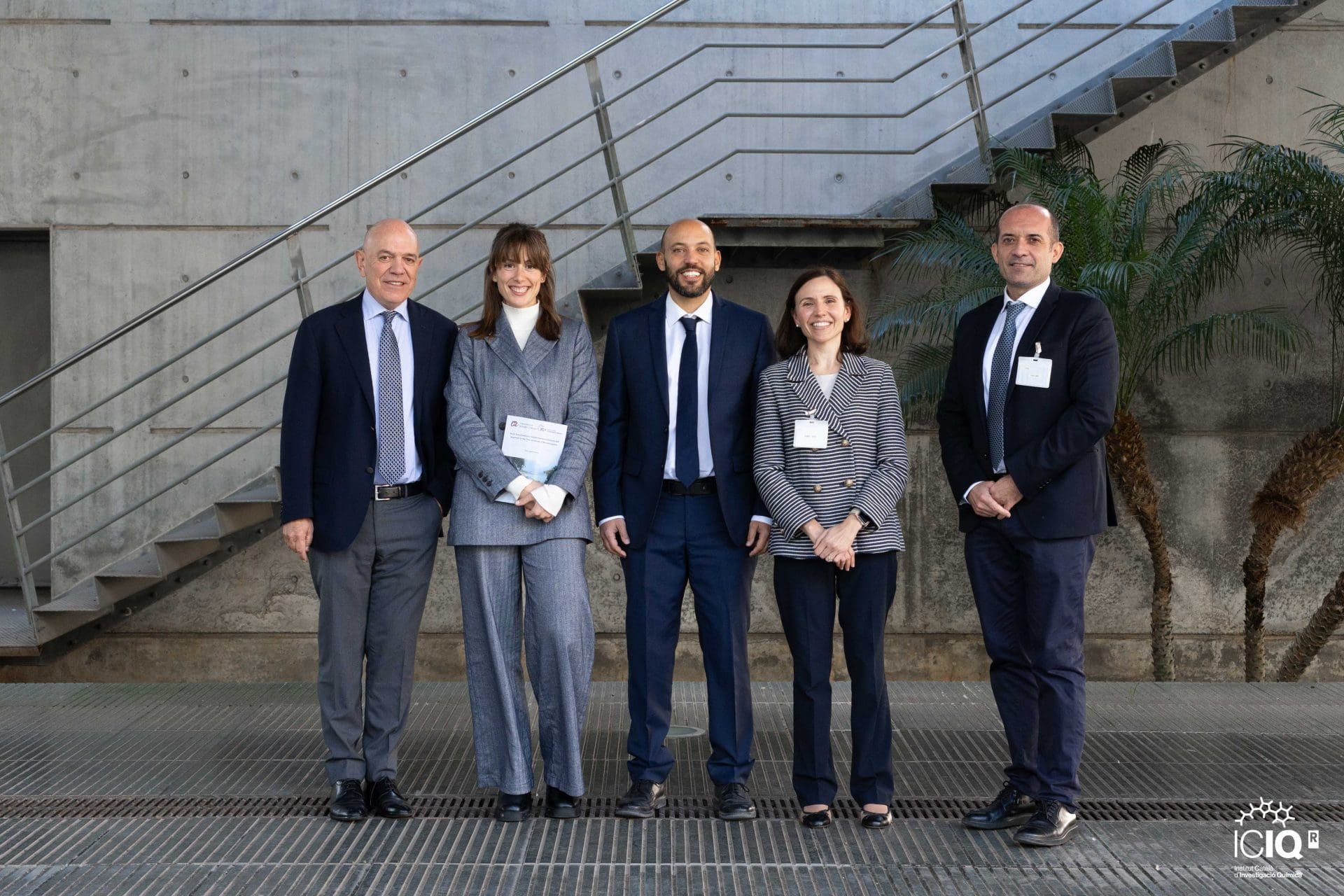New Doctor at ICIQ!
Michael Higham, PhD student under the supervision of Prof. Núria López (ICIQ), has defended his PhD Thesis entitled “Theoretical Studies of Heterogeneous Catalysis for Halogen Chemistry” (assigned to the Physical and Inorganic Chemistry Department of the Universitat Rovira i Virgili) publicly on November 13th at the ICIQ Auditorium.
The members of the evaluation committee were: Prof. Zbigniew Lodziana (The Henryk Niewodniczaski Institute of Nuclear Physics, Kraków, Poland), Dr. Maria Besora (ICIQ) and Dr. Jordi Cirera (Universitat de Barcelona)
Abstract
Computational techniques are applied to investigate the utility of rutile transition metal oxide based systems as catalysts for halogen chemistry. The studies explore the interplay between surface structure and composition, catalytic activity and product selectivity.
The work focuses on ruthenium dioxide and titanium dioxide based systems as catalysts for hydrogen halide oxidation and ethylene oxychlorination reactions. DFT calculations show that under hydrogen halide oxidation conditions, replacement of surface oxygen atoms in the rutile catalyst can occur. In particular, significant bromine uptake was found to occur in ruthenium dioxide, with bromine replacement extending beyond the surface to the subsurface layers and inducing a major structural rearrangement at the surface. It is thus proposed that the reaction mechanism is closely linked to the extent of surface replacement. The investigations also examine doped titanium dioxide based systems. The relationship between dopant-induced electronic structure defect states, and the catalyst activity towards elementary processes associated with hydrogen halide oxidation, is explored. In particular, it was found that a judicious choice of dopant atom can be made to optimise the number of defect states, and their associated energies, in order to fine-tune the electronic structure of the system for optimal activity. Finally, ruthenium dioxide is investigated as a potential catalyst for ethylene oxychlorination. It was found that competition between combustion and oxychlorination processes is enhanced by dimensional confinement of adsorbates on the catalyst surface, and that surface coverage is an essential factor in determining the feasibility of certain elementary processes, and thus product selectivity.
The thesis provides a clear overview of rutile catalysts for halogen chemistry and provides detailed insights which can inform the future development of superior catalysts.
Related news

Let's create a brighter future
Join our team to work with renowned researchers, tackle groundbreaking
projects and contribute to meaningful scientific advancements







 10-01-2025
10-01-2025 


















